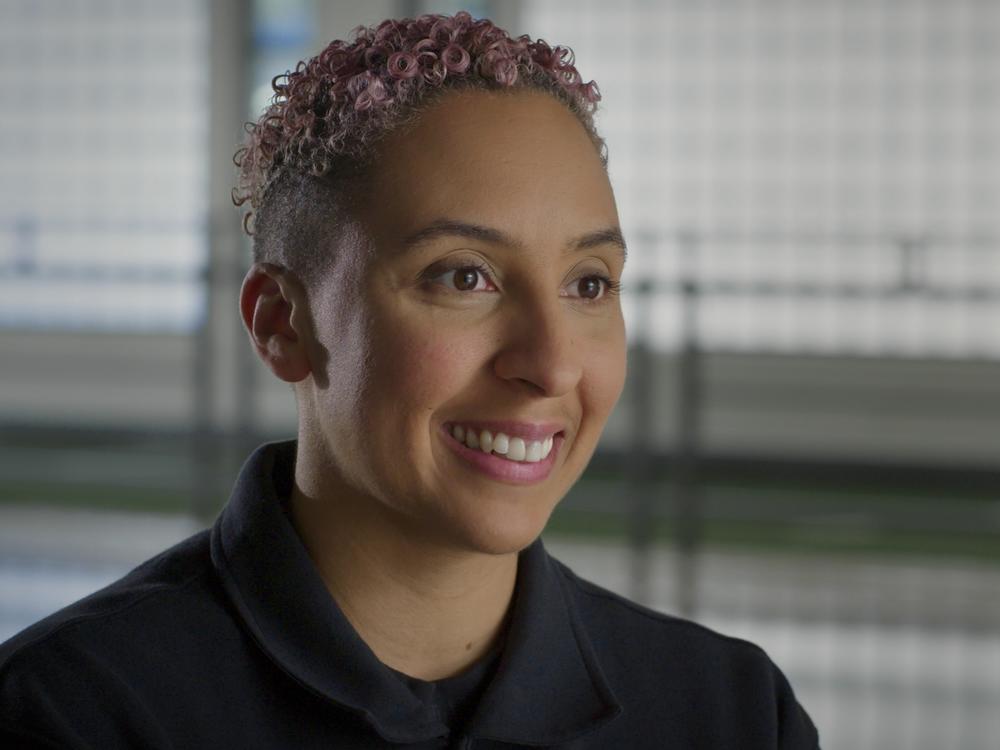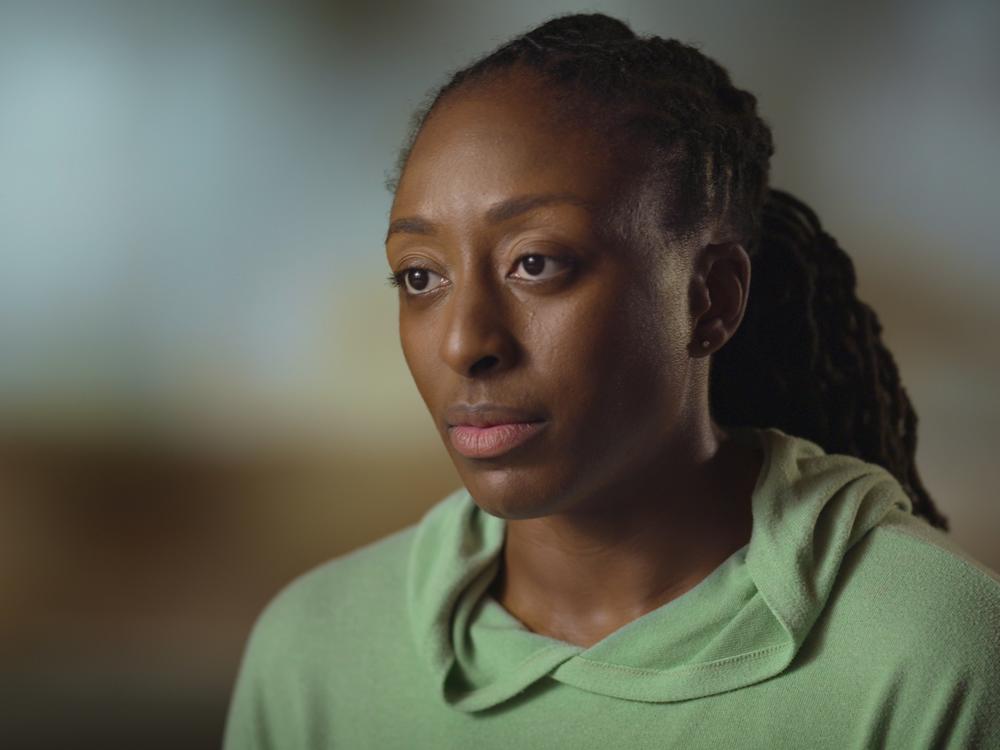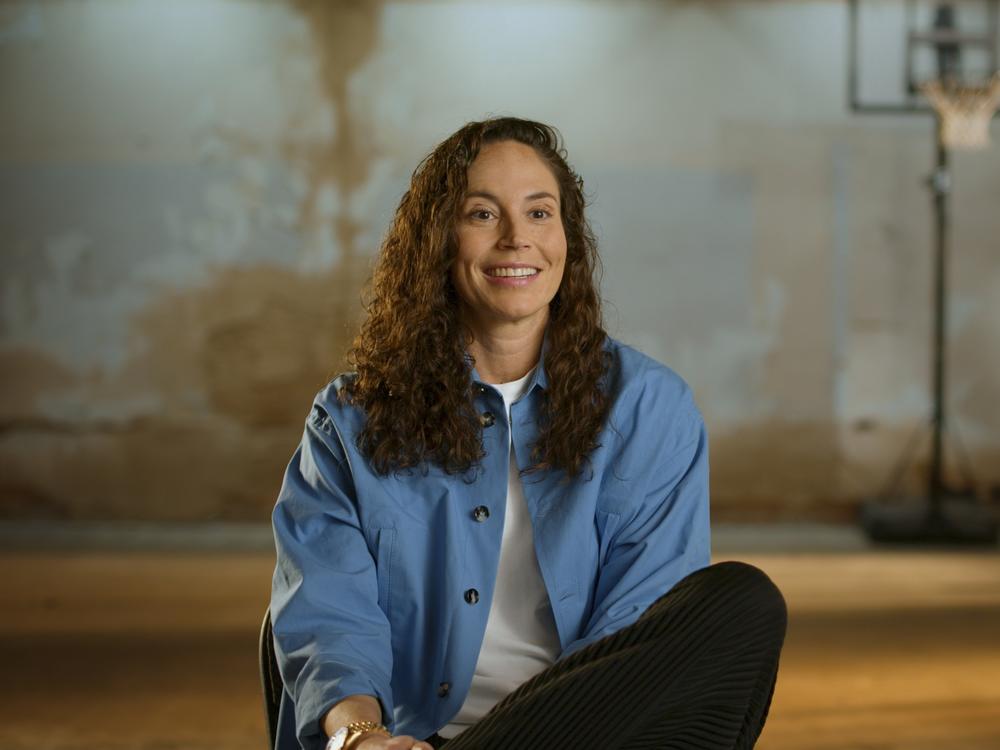Section Branding
Header Content
The WNBA is having a moment. A new documentary highlights off-court player activism
Primary Content
Know how you can tell if women’s sports has finally broken into the American mainstream consciousness? When your 82-year-old grandmother-in-law tells you, “They’ve been showing a lot more girls basketball on television these days.”
With viewership for women’s basketball at an all-time high, "Power of the Dream" — Amazon’s new documentary directed by Dawn Porter that highlights the WNBA’s fight for equity and representation — arrives at an apex moment.
Offering a candid look into the off-court activism of WNBAers during the COVID-ravaged 2020 season — as players mourn the loss of Black lives due to police violence and get involved in the Georgia senatorial race — the film isn’t what you’d expect from a basketball joint. There’s virtually no dribbling in it, and very little action about the sport itself. (Perhaps that’s communicated in the title, which is more poetic than it is athletic).
And yet, this isn’t a polished look at the league’s imperviousness. It’s about the ugliness of pro sports in America: the struggles that even the world’s most successful, elite basketballers face, their battles to impact greater social change, and their sacrifices to improve conditions for marginalized communities, all while juggling their own needs that aren’t being met as a unionized workforce of 144 employees.
With a mix of news clips, original documentary footage, and interviews with notable sports journalists and WNBA icons (including Angel McCoughtry, Layshia Clarendon, and Elizabeth Williams), the film shows multiple dimensions of player-led change.
Rather than glorifying the WNBA’s public image (the film shows when the league misstepped by fining players for their social actions), the camera zooms in on players in genuine states of vulnerability and uncertainty — if not utter frustration — as they coordinate to stand up for their core beliefs. It helps that two of the featured athletes, Nneka Ogwumike and Sue Bird, widely considered to be among the best women hoopers of their generations, are behind the film’s production. The documentary shines brightest in moments that feel intimate: windows of genuine urgency and (figurative) locker room access that can be gained when the players themselves have a hand in the making.
Ultimately, the film asks: What responsibilities do modern professional athletes have? How do those responsibilities evolve, shift and deepen when layered with issues of gender, race and economics? And how do high-achieving humans respond when their dreams are challenged and interrupted?
A legacy of WNBActivism
"Power of the Dream" constructs a framework beginning with the opening scene, when a group key players prepare to discuss their political views on live television while wearing black T-shirts that read “ARREST THE COPS WHO KILLED BREONNA TAYLOR” and “SAY HER NAME.”
From the outset, the film provides a microhistory on the legacy of social advocacy among WNBA players — despite being fined, targeted and criticized by league officials, media and fans. In 2016, the Minnesota Lynx drew ire from the Minnesota Police Department after members of the team spoke out against the killing of Philando Castile in nearby Falcon Heights. The team’s franchise player and four-time WNBA champion, Maya Moore, became the face of the player-led protests. The boldness of the Lynx — who, at the time, were the WNBA’s version of Michael Jordan’s Chicago Bulls of the ‘90s — initiated a chain of protests in the sports world culminating with Colin Kaepernick’s infamous NFL kneel later that year.
Moore would eventually take her fight for justice further, stepping away from basketball in 2019 to dedicate time towards freeing a wrongly convicted man (Jonathan Irons, her now-husband), and eventually retiring to fully pursue social justice causes. Moore’s story isn’t brand new, but, through the insights of journalists like Jemele Hill, the documentary argues that the magnitude of Moore’s actions haven’t been fully grasped yet. Her work is positioned as a reflection of the WNBA’s larger ethos of compassion in ways that are rarely seen in other major leagues.
Moore isn’t the only WNBA luminary who has risked her own neck to do the right thing. Much of the documentary focuses on the coordinated efforts of the league’s players at the height of the 2020 “Wubble.”
With the murders of Breonna Taylor and, months later, George Floyd, the league’s biggest stars take a unified stand. With televised games scheduled to air, they collectively refuse to compete as usual, instead gathering on the lawn of IMG Academy in Bradenton, Fla. — where their shortened, quarantined season took place — to hold a vigil. Every single WNBA player was in attendance. It’s among the most moving things you’ll ever see in professional sports. Imagine any other league pulling that off.
Holly Rowe, an ESPN reporter who was assigned to cover the WNBA’s COVID season, says in the documentary that those WNBA players embodied the most politicized group of pro athletes in U.S. history. These weren’t just individuals sharing comments on social media, or outliers spewing out-of-context, post-game press conference soundbites — it was a tactical, organized assemblage of the league’s entirety speaking out as one. And they sustained it throughout the whole season.
Labor politics in the “W”
For the uninitiated WNBA newbie, "Power of the Dream" is an introduction to the players’ collaborative capacity for change. Indeed, the WNBA offers a case study in labor organizing that arguably no other major sports league in America can.
Ogwumike — a league stalwart, Stanford alumni and former No. 1 pick in the 2012 WNBA Draft — helmed the Women's National Basketball Players Association during pivotal contract negotiations in 2019 and 2020.
The filmmakers show Ogwumike and her colleagues strategizing, and then, like a fastbreak on the open court, coming up big. They secured an unprecedented 53% salary increase and paid maternity leave, among the largest, most progressive overhauls in U.S. sports bargaining history. (There’s still a long way to go: The WNBA’s top-paid stars will make around $250,000 in salaries this year; just a fraction of the NBA’s minimum pay of over $1 million.)
The WNBA players’ victory, though a subplot in the film, serves a narrative function: it lays the groundwork for legitimizing the WNBA’s relentless efforts for improving conditions on multiple fronts — forming one spear tip in their multi-pronged demand for change that eventually reaches Congress.
The Georgia U.S. Senate race
The WNBA’s Atlanta Dream franchise — named after Dr. Martin Luther King’s timeless monologue — is the climactic end point of the documentary (see: "Power of the Dream"). Though the filmmakers choose to explore league-wide issues plaguing athletes on various teams leading up to that moment, the overall exposition ultimately funnels towards Atlanta.
Amid the social turmoil of the 2020 season, Atlanta’s then-majority-owner, Republican Sen. Kelly Loeffler (who declined to be interviewed for the documentary) became a major source of disruption for the players when she discredited the WNBA’s women for their support of Black Lives Matter.
As the 2020 elections unfolded in Georgia, Loeffler was favored to win in a crucial Senate race as the incumbent candidate. WNBA players, once again, made history: they openly denounced Loeffler by strategically rallying around her opponent, Rev. Raphael Warnock.
Warnock held only 9% of voter support before the WNBA's involvement, and the documentary positions the players' support as crucial to his win. In the film, Warnock (the only male subject) largely credits the WNBA for his unprecedented victory, becoming Georgia’s first-ever Black senator. He remains in office.
Despite her monumental success on and off the court, Bird still grapples with the larger question of pro athletes’ responsibilities, and whether or not they should even exert their social and political influence at such a high level. It’s not lost on her, and her peers, that in order to make change for their communities, they must also do the work. For these players, that meant talking with family members and figures like Michelle Obama, getting involved with organizations like “Say Her Name,” doing research on candidates, and actually meeting Warnock before they officially endorsed him. Those duties are certainly not listed on the job description for a WNBA player — or any top-level athlete, for that matter.
“It’s never just been about basketball for us,” Bird says on camera. And for this particular group of hoopers, how could it be?




